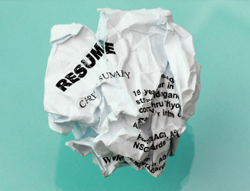Despite “End” to Recession, Hard Times Persist
18 April 2013

A recession, goes an old Wall Street proverb, is simply a period of time in which wealth and capital returns to its rightful owners. E.g., the Rockefellers.
Well, the recession – according to the National Bureau of Economic Research, which is, apparently, the arbiter of these things, is over. It ended in 2009, says the Bureau. But it’s hard to tell from the labor market. Meanwhile, The Great Recession of 2007 has created a veritable shockwave that continues to affect consumers both in the U.S. and around the world.
And when I say “consumers,” I mean, “people.”
According to the 2009 Stress in America Survey by the American Psychological Association, 78% of Americans reported money problems as a significant contributor to stress. Though the Bureau of Labor Statistics reports a drop in national unemployment following the initial crisis, unemployment rates still hover over 7%, meaning millions are still out of a job. When you adjust for the decline in the labor participation rate, which reflects the number of people who gave up on the job search altogether, whose unemployment benefits ran out, or punted and began to take disability, the unemployment rate is over eleven percent.
Unemployment typically has a domino-effect on the jobless, their families and communities, and future generations of income-earners. The unemployed are at a greater risk of developing anxiety and depression as a result of a sudden lack of income, and often survive on money earmarked for later retirement to make ends meet after a drop in resource. The Transamerica Center for Retirement Studies observed more than 60% of those unemployed were dipping into retirement accounts for their daily needs. Imagine saving funds diligently for decades with your company’s 401(k) only to have to withdraw early, incurring hefty early-withdrawal fees.
While two-thirds of Americans had a savings account in 2010, the average balance was a meager $30,000. One-third of Americans has no savings or retirement fund as a financial backing. Both may be forced to delay retirement indefinitely to cope with these global effects of unemployment.
The families of the unemployed are often left to deal with the fallout of economic devastation. Money issues are historically problematic for couples across time. Increased pressure during times of economic distress may be the straw that breaks the family’s back. A study by the American Association of Neurological Surgeons found that rates of ‘non-accidental head trauma’ more than doubled in times of economic recession. The global effects of unemployment often bleed beyond the bank account, and rend the fabric of the family unit.
The effects of unemployment are unfortunately rarely self-contained to those who lose their jobs. The Journal of Labor Economics reports that children of unemployed Fathers have reported earnings an average 9% lower than those children whose fathers retained employment, and are more likely to have access to social services and unemployment insurance.
The distress of the economic downturn is in part the result of changes in societal structure; these same changes continue to create a different landscape for the unemployment market. Many salaried workers are seeing labor and budget cuts following the economic collapse, leaving many workers with less earning potential. Company cutbacks may mean fewer workers left to cover an existing workload – contributing to job stress, depression, presenteeism and employee burnout.
Those that retain employment may see a drop in compensation, cuts in employee benefits, or slashed pensions. The unemployed are left to compete with the average six-person-per-job posting market, only to receive 11% less compensation, on average, when they re-enter the workforce.
Increasingly, more jobs considered ‘low-skill,’ requiring minimal, if any, higher education, are being filled with over-qualified employees; this means fewer jobs for the less-educated, complicating the issue of employment for those who are already vulnerable to a workforce demanding more educated staff.
The changes in the national and international economy present a challenging road ahead for families across America and the globe.
Nevertheless, I posit that the correct course of action is not to give up, despite any adversity, as long as one draws breath and is capable of contributing. As French General Ferdinand Foch said at the Battle of the Marne, “My center is giving way, my right is in retreat; situation excellent. I shall attack.” General Creighton Abrams, then a tank battalion commander in the American Army in the darkest days of the Battle of the Bulge, said, “They’ve got us surrounded, the poor bastards!”
You may have to change your methods. But keep fighting. Fight hard, and fight every day, and fight smart, and you will get your break.
We’ve got excellent opportunities with reliable Clients in Vitaver’s CAREER section.




